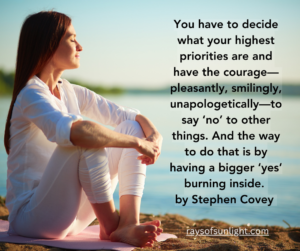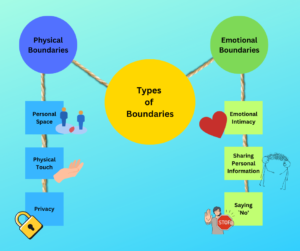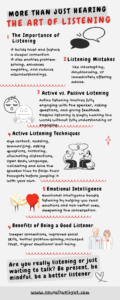As an Amazon Associate, as well as an affiliate of other programs, I earn from qualifying purchases. This may influence which products I write about and where and how the product appears on a page. However, this does not influence my evaluations or recommendations. My opinions are my own.
Do you ever feel like you’re always tuned into someone else’s radio station, flipping through their opinions and judgments as if you’ve lost control of the dial? You’re not alone. We’ve all been there, and it’s time we talk about it. In today’s post, we’re diving deep into ‘How to Say ‘No’ and Master Emotional Control.’
We’ll explore the root causes behind this relentless quest for approval and guide you through ways to take control of your emotions and set your own boundaries.
So What’s The Root of the Issue:
Social Conditioning and Our Lifelong Quest for Approval
From the moment we start socializing, we’re taught to seek approval. “Be a good kid,” “Get good grades,” “Be likable.” While some of this is necessary for social harmony, it can quickly escalate into a lifelong quest for validation if we’re not careful. From the moment we start socializing, we’re taught to seek approval… And let’s not forget the role of social media, which amplifies the need for approval by turning life into a non stop showcase of life best moments.
If you’re looking to break free from these approval-seeking behaviors, check out this insightful article: 13 Approval Seeking Behaviors You Need to Stop.
The Fear Factor: How It Limits Us
Ah, the fear of rejection or judgment – it’s like our brains still have ancient survival instincts, thinking being disliked equals getting chased by saber-toothed tigers. Silly brain, we’re not living in the Stone Age anymore.
But in today’s world, that fear isn’t just a quirky relic; it’s more like a buzzkill at a party, dampening our spirits and messing with our personal growth and opportunities. Time to face it head-on and show it who’s boss, right?
Video: If you’re interested in delving deeper into the psychology of fear and how to overcome it, check out this informative video by Dr. Jordan Peterson: Watch the video.
 Childhood Foundations: Our First Emotional Classroom
Childhood Foundations: Our First Emotional Classroom
Our upbringing and family environment play a massive role in how we seek validation and handle fear. It’s like the first ‘classroom’ we’re ever in, right? Our families teach us what is acceptable to express and what isn’t, shaping our emotional boundaries—or sometimes the lack thereof.
In many families, you might see emotional expression frowned upon, labeled as a sign of weakness. Or maybe you grew up in a household where approval was equated with love, setting you up for a lifetime of seeking external validation.
The Journey Toward Emotional Freedom
Digging deep… to understand these foundational experiences can offer us powerful insights. It can also be the first step in breaking free from these ingrained patterns. You’re digging through layers to find the root causes of your feelings and reactions. That takes courage, but it’s so worth it. Because diving into these root causes; that’s where real growth in mastering emotional control happens! 🌱
And lastly the consideration of…..
Generational Outlooks: How Validation Evolves Through the Ages

It’s fascinating to see how the quest for validation shifts from one generation to the next. Baby boomers might have sought approval through job stability and traditional milestones, while Gen Z navigates a digital landscape where ‘likes’ equate validation. Each generation has its own maze to navigate, adding layers of complexity to this age-old human need.
The Consequences:
- Emotional Drain: Constantly seeking validation is like having an emotional leak. You never feel ‘full’ because you’re always looking for the next ‘like’ or nod of approval.
- Hindered Personal Growth: If you’re constantly looking outside for validation, when will you ever look within? Self-discovery takes a back seat, and personal growth stalls.
- Reduced Life Satisfaction: When you’re always looking for external cues on how to live your life, you miss out on experiencing it in a way that genuinely makes you happy.
Strategies to Stop Letting Others’ Opinions Matter:
Discovering Your True Self: Establish a Strong Sense of Self
Exercise: Journaling Prompts for Self-Reflection
- What are my core values?
- What genuinely makes me happy?
- What are my strengths and weaknesses, and how do I feel about them?
For more insights on the transformative power of journaling, don’t miss this article on Medium:Power of Journaling.
Looking for the Perfect Journaling Tools?
Blank Lined Journal: Ideal for those who want the freedom to write without constraints.
Get it on Amazon here: https://amzn.to/3tBEIjF
Let That Sh*t Go Journal: Packed with actionable mindfulness techniques, this journal is your key to a happier life.
Get it on Amazon here: https://amzn.to/40ogupH
Soul Therapy Journal: Offers daily prompts to deepen your emotional connection with yourself—perfect for those on a self-healing journey.
Get it on Amazon here: https://amzn.to/3s5zoVs
Journaling Pen: Designed for a smooth and comfortable writing experience.
Get it on Amazon: https://amzn.to/3QrCble
Strategies:
1. Self-Awareness: The more you know about yourself, the less you’ll need others to tell you. Spend time in self-reflection, and don’t shy away from the tough questions.
2. Validate Yourself: Create your own metrics for success. Your worth isn’t determined by how many likes you get or how many people agree with you.
3. Establish Boundaries: Decide what opinions you will entertain and from whom. Not everyone deserves a seat at the table of your life.
Time to take the wheel of our lives and steer toward the path we’re passionate about. Who’s riding shotgun with me? 🚗💨
So, what are your strategies for breaking free from the weight of other people’s opinions? I’d love to hear them! 💬
So How do we Set Boundaries? The Power of Saying No
I’ll be the first to admit, Saying, ‘No’ is not always easy for me. It can feel like you’re disappointing someone, and who wants that? But you know what’s even worse? Overcommitting yourself to the point of burnout or neglecting your own well-being. We’ve all been there, and it’s no fun. 😓
Why It’s Challenging to Say No:
Our culture often glorifies busyness. The busier you are, the more ‘important’ or ‘successful’ you seem. But what’s the true cost we pay for this constant hustle? Is it our health, peace of mind, or precious moments with our loved ones that we’re sacrificing? No thank you!
How To Start:
- Prioritize: Before automatically saying yes to every request that comes your way, take a moment to evaluate its impact on your time and energy.
- Be Honest: It’s okay to be upfront about your limitations. People will appreciate your honesty more than a begrudging ‘yes’.
- Offer Alternatives: If saying an outright ‘no’ feels too harsh, offer an alternative. Can you participate in a smaller capacity? Can you do it at another time?
- Practice: The more you practice saying ‘no,’ the easier it will get. Start small. Turn down that extra piece of cake or that additional task at work that you know you can’t handle right now.
The Bottom Line:
Learning to say ‘no’ is not just about refusing things you don’t want to do; it’s about saying ‘yes’ to your own well-being and peace of mind. By mastering emotional control, you’re honoring your own needs and limitations.
So next time you’re faced with a request or an opportunity, remember it’s not just okay to say ‘no’—it’s essential for a balanced life and achieving emotional freedom. And hey, if someone gets upset, that’s on them, not you. You can’t pour from an empty cup, right? 😉
Cheers to putting ourselves first, because we’re worth it! 🌟
Practical Steps for Mastering Emotional Control Through Boundary Setting
Setting boundaries isn’t about closing doors; it’s about defining your comfort zone. You know, drawing a line in the sand that says ‘this is my space, and it’s sacred.’ This isn’t about shutting people out; it’s about welcoming the right energies in. So, how do we go about this? Here are some practical steps:
Navigating Emotional Boundaries
- Map Out Your Emotional Terrain: Knowing what you can handle emotionally is step one. Consider making a list, so you have a go-to guide for your own comfort zone.
- Speak Up, But Keep It Chill: If someone strays into your emotional space, be assertive but not aggressive. A
simple phrase like, “Discussing personal matters at work isn’t my jam,” sets the boundary without raising tensions. - Claim Your Feelings, No Apologies: Your emotions are your personal territory. Don’t let anyone trespass and make you feel guilty for drawing your own lines.

- Find Your Boundary Buddies: Whether it’s a therapist or a friend who’s a pro at setting boundaries, don’t hesitate to tap into their wisdom.
Mastering Physical Boundaries
- Tune Into Your Body’s Signals: Trust that gut feeling when you sense a boundary being crossed. It’s often your body’s first alert system.
- Be Explicit, But Respectful: If hugs make you cringe, a simple, “I’m a handshake kind of person,” keeps things clear without offending anyone.
- Rehearse to Relieve the Stress: Sometimes practicing what you’ll say makes the actual saying a whole lot easier. Trust me, it works.
- Safety First, Always: Physical boundaries can sometimes feel risky to enforce. If you’re ever uneasy, prioritize your safety by removing yourself from the situation and seeking help if needed.
General Tips
Consistency is key to mastering emotional control: The more you enforce your boundaries, the more seriously they will be taken. Additionally, celebrate your wins: Each time a boundary is respected, that’s a big deal! Take a moment to pat yourself on the back. Lastly, don’t forget to revisit and revise: Life changes, and so will your boundaries.
How to Take Control of Your Life
Ever feel like your life is running on a script someone else wrote? You’re not alone. Between the well-meaning advice and unsolicited opinions, it can be challenging to stay true to yourself. So, how do we navigate this? Glad you asked! Here’s a handy guide.
Filter the Noise: Not All Opinions Are Created Equal
- Pinpoint Your Inner Circle: First things first, jot down the names of the VIPs in your life—those true-blue friends, guiding family members, and wise mentors whose perspectives really resonate with you. These are the folks who have a reserved seat at your decision-making table.
- Weigh the Wisdom: Advice isn’t a one-size-fits-all deal. When you’re given counsel, think about who it’s coming from. If their track record in the subject area is, well, lacking, maybe take their two cents as just that—two cents.
- Listen to Your Inner Compass: Finally, never underestimate the power of a gut feeling. If something’s setting off your internal alarm, chances are it’s more noise than nuance. Trust that.

How to Identify Whose Opinions Should Matter
- First, think about values alignment: Do this person’s core values resonate with yours? If so, their advice might be worth your time.
- Next, consider their track record: Have their insights proven beneficial for you in the past?
- Also, ponder their investment in you: Authentic advice often comes from those who have your best interests at heart.
Practice Detachment: Mindfulness Exercises to Separate Your Self-Worth from Others’ Judgments
- To begin with, observe, don’t absorb: Try looking at the opinion as a fleeting thought or a cloud passing by. It’s there, but it doesn’t have to dictate your mood.
- Additionally, apply the “Is It True?” test: Before letting any criticism sink in, question its validity. If it doesn’t pass the test, let that thought sail away.
- Finally, turn to mindfulness: Simple practices like deep breathing or mindfulness meditation can be powerful tools for detaching from the noise and focusing on what really matters.
Speak Your Truth
1. Be Authentic: You are not a ‘one-size-fits-all’ kind of person. Speak up about your own experiences and perspectives. For more insights on the power of authenticity, check out this article on Psychology Today: Read: The Power of Authenticity.
2. It’s Okay to Disagree: You won’t always see eye to eye with everyone, and that’s okay. Stand your ground respectfully.
3. Keep Your End Goal in Mind: Remember why you started this journey, and let that guide you when speaking your truth.
And there it is,—a roadmap to mastering emotional control and deciding whose opinions get to sit in the passenger seat of your life journey. Remember, you’re the driver here. So crank up the tunes you like, roll down the windows, and hit the open road! 🚗💨
What about you? How do you handle the noise and focus on what truly matters? Would love to hear your thoughts. 💬
The Struggle for Authenticity:
The Struggle for Authenticity:
Being authentic, especially when the world often rewards conformity, is a challenge I personally wrestle with. It’s not just about how others view us; it’s about how we participate in other people’s journeys as well.
The Art of Listening:
Let’s be honest, not everyone wants to hear your full story. More often than not, people are quick to offer unsolicited advice. They miss the mark, offering solutions without truly understanding the problem. This can make our challenges seem trivial, which is not only unfair but can also be emotionally damaging.
I’ve put together an infographic that gets to the heart of what it means to truly listen—no unsolicited advice, no snap judgments. Give it a look; it could make all the difference in your next heartfelt chat.
What We Really Need:
In the world we live in, discovering someone who can sit with you in your hardship without criticizing or providing one-size-fits-all advice is uncommon. Such individuals don’t diminish the significance of your issues because they comprehend that everyone’s difficulties are significant to them. What most of us seek is not a ‘solution’ but a receptive ear, someone to aid us in sorting out our thoughts and emotions without preconceived notions or judgments.
Must-Reads for Mastering Emotional Control and Saying ‘No’
If this article has sparked your interest in taking control of your emotional life and learning the art of saying ‘No,’ then I have some book recommendations that’ll help you dig deeper into the subject:
1. “Boundaries: When to Say Yes, How to Say No to Take Control of Your Life” by Dr. Henry Cloud and Dr. John Townsend: This is the go-to guide for setting healthy boundaries in various aspects of your life. Find it here: https://amzn.to/3Mdb2Qw
2. “Radical Acceptance: Embracing Your Life With the Heart of a Buddha” by Tara Brach: This book explores how to emotionally accept your current situation and make positive changes from there. Grab your copy here on Amazon: https://amzn.to/3QtfL2N
3. “Crucial Conversations: Tools for Talking When Stakes Are High” by Kerry Patterson: If saying ‘No’ often lands you in difficult conversations, this book offers excellent advice on navigating them. Learn more here: https://amzn.to/45FAxkd
4. “The Subtle Art of Not Giving a F*ck” by Mark Manson: A modern, no-nonsense guide to prioritizing what’s truly important. Read it now: https://amzn.to/3FqSXL0
5. “Emotional Intelligence 2.0” by Travis Bradberry & Jean Greaves: To master emotional control, understanding the basics of emotional intelligence can go a long way. Discover the wisdom. https://amzn.to/3Fscs5E
6. “The Gifts of Imperfection: 10th” Anniversary Edition” by Brené Brown: It’s a game-changer for emotional control. You can find it here on amazon: https://amzn.to/3QtNbys
Wrapping it Up
So, there we have it, a little bit of soul-nourishing goodness for you. Whether it’s the heavy weight of others’ opinions, the difficult act of saying ‘no,’ or the journey towards setting boundaries and mastering emotional control, remember—you’re not alone. Each one of us is behind the wheel of our own lives, and it’s entirely up to us to decide the direction we want to take. And hey, a few bumps and detours? They’re all part of the scenic route called Life.
As we go along this journey, let’s not forget to be our own cheerleaders, trusting our intuition, and respecting ourselves enough to set boundaries. Because ultimately, it’s not about being liked by everyone; it’s about loving who you are in your own unique, incredible way. 🌟
So, tell me, what’s your take-away from all this? Any ‘aha’ moments you’d like to share? Would love to hear your thoughts! 💬
if you have enjoyed this post… Please send me some love…share, like and comment ❤️
Connect with Me!
For daily doses of inspiration, heartfelt stories, and game-changing wellness strategies, make sure to stay connected.
Natalie Fletcher
Visit my website: RaysofSunlight
Follow me on Facebook: Natalie Fletcher
True Balance Nanaimo: Facebook Page
Connect with me: Linktree
Reach out via Email: 8TrueBalance@gmail.com
Ready to level up your life, both in wellness and wealth? Let’s start this transformative journey together!
Discover more from TrueBalance
Subscribe to get the latest posts sent to your email.





2 thoughts on “How to Say ‘No’ and Master Emotional Control”